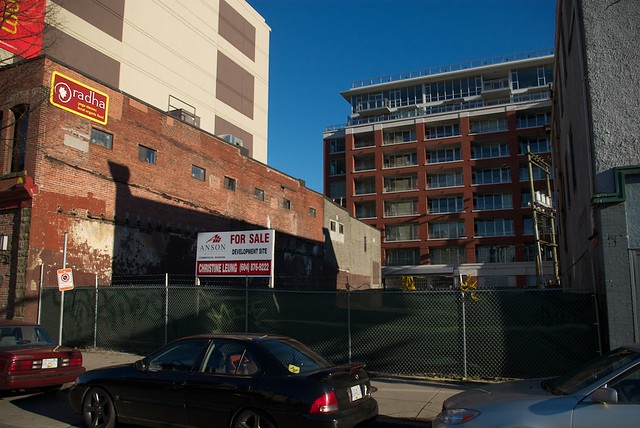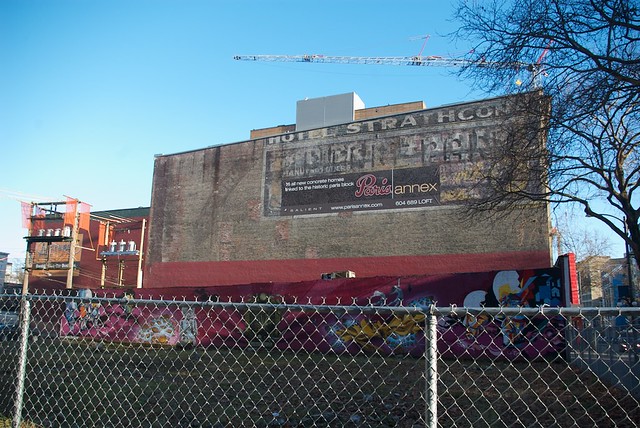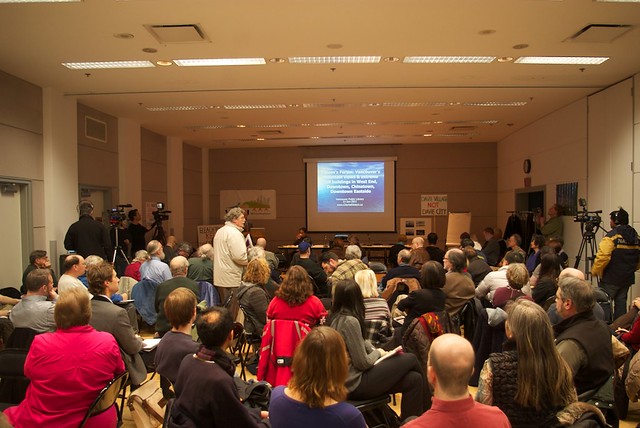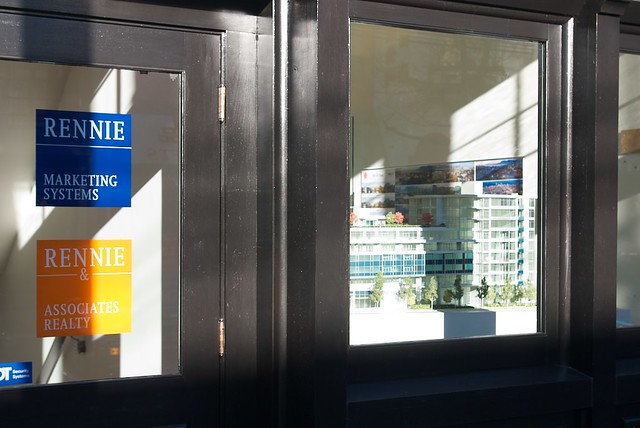
The 10 SITES COALITION of Downtown Eastside organizations has issued a statement opposing the “Historic Area Height Review,” which goes before City Council on January 20 2011. The so-called “Height Review,” which the Coalition calls the “condo tower plan,” anticipates 7 condo 15-storey condominum developments in the Downtown Eastside – 2 North of Pender between Carrall and Abbott, and 5 in South Chinatown.
The Coalition statement outlines concerns that market condo gentrification is causing rent increases, renovictions, displacement of low-income residents, increased police harrassments, and erosion of community assets.
A three year community-mapping process from 2007-2010, facilitated by the Carnegie Community Action Project, identified “unique and authentic community assets” of the Downtown Eastside community (for the series of three reports, see here).
The Coalition statement asks Vancouver City Council to “vote against adding any new density for condos within the Downtown Eastside until the assets and tenure of low-income residents are secured and until the Social Impact Study and DTES Strategy are complete.”
The statement asks Council to instead take proactive measures to stop gentrification by “[buying] 10 sites for low income resident-controlled social housing within the Downtown Eastside before the next municipal election [in Nov 2011]” (click here for a list of the 10 sites).
The City’s administrative (see page 15) claims that there is broad community support for the condo plan, with the exception of one group:
Community groups were also generally supportive of the draft Rezoning Policy, noting however that the Carnegie Community Action Project (CCAP) remains concerned about the impact of new development on the low-income community.
But the Coalition letter to City Council, dated Thursday Jan 13 2011, is signed by a dozen organizations, including:
Association of Chinese Canadians for Equality and Solidarity Society
Carnegie Community Action Project
Downtown Eastside Neighbourhood Council
Downtown Eastside Women’s Centre Power of Women
REED
Vancouver Area Network of Drug Users
Western Aboriginal Harm Reduction
W2
Gallery Gachet
The next day, Jan 14 2011, Vancouver City Councilor Geoff Meggs told The Mainlander “so far, I have not seen any negative comment on the current report from Chinese community leaders or activists, but plenty from those who live elsewhere.”
Meggs referred the “Historic Area Height Review” incorrectly as the “Chinatown Height Review,” and suggested that the new condo developments were all South of Pender. As mentioned, two of the most controversial sites are North of Pender, including the half-block BC Electric site across from Pigeon Park.
The 10 SITES COALITION is calling on residents and allies of the Downtown Eastside to speak to City Council against more condos: “Before you can speak, you have to phone 604 873 7268 and ask for Tina Hildebrandt. Tell her that you want to speak on the issue of the Historic Area Height Review (that’s what staff is calling the condo tower plan) on Jan. 20.”




